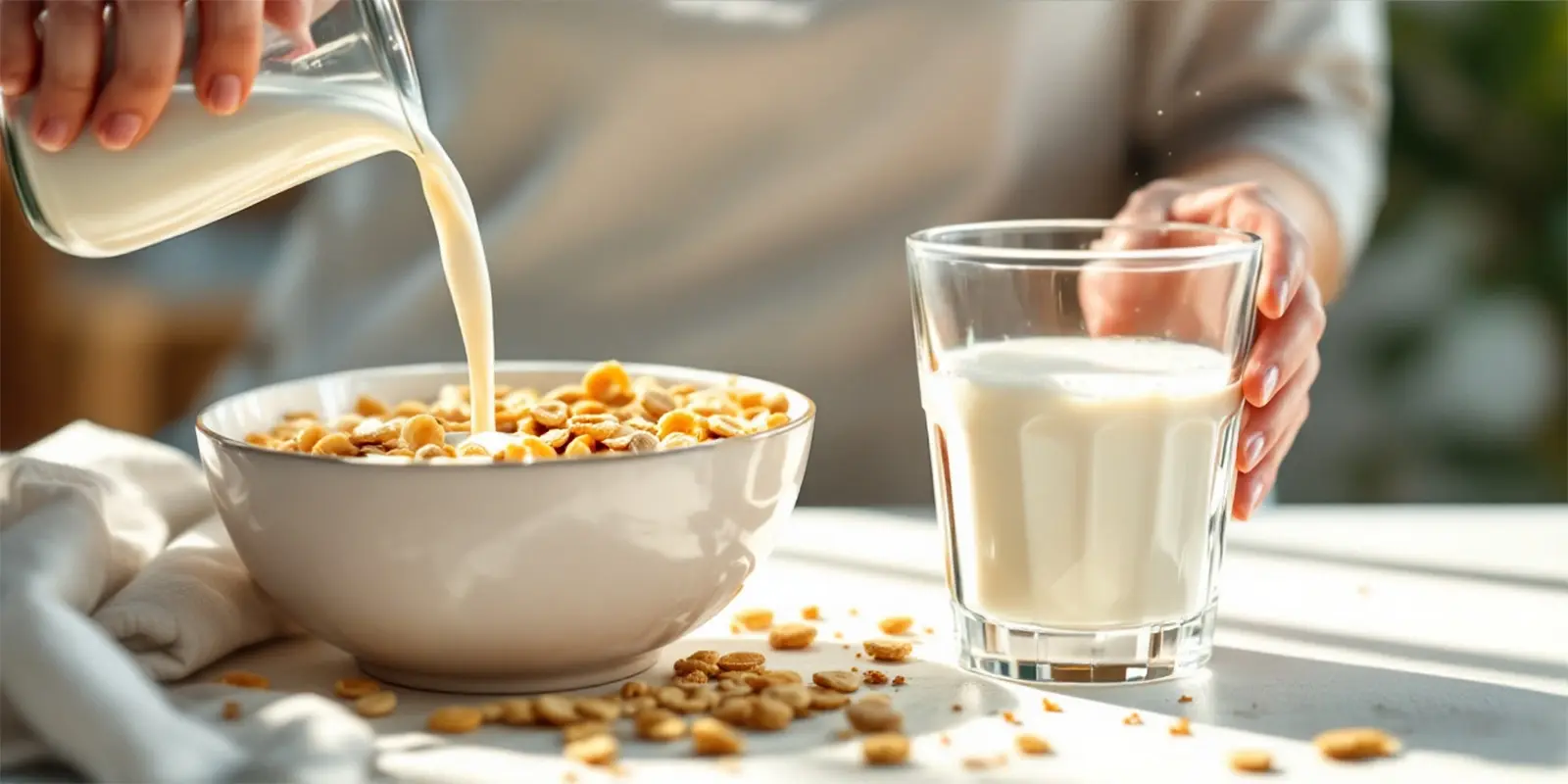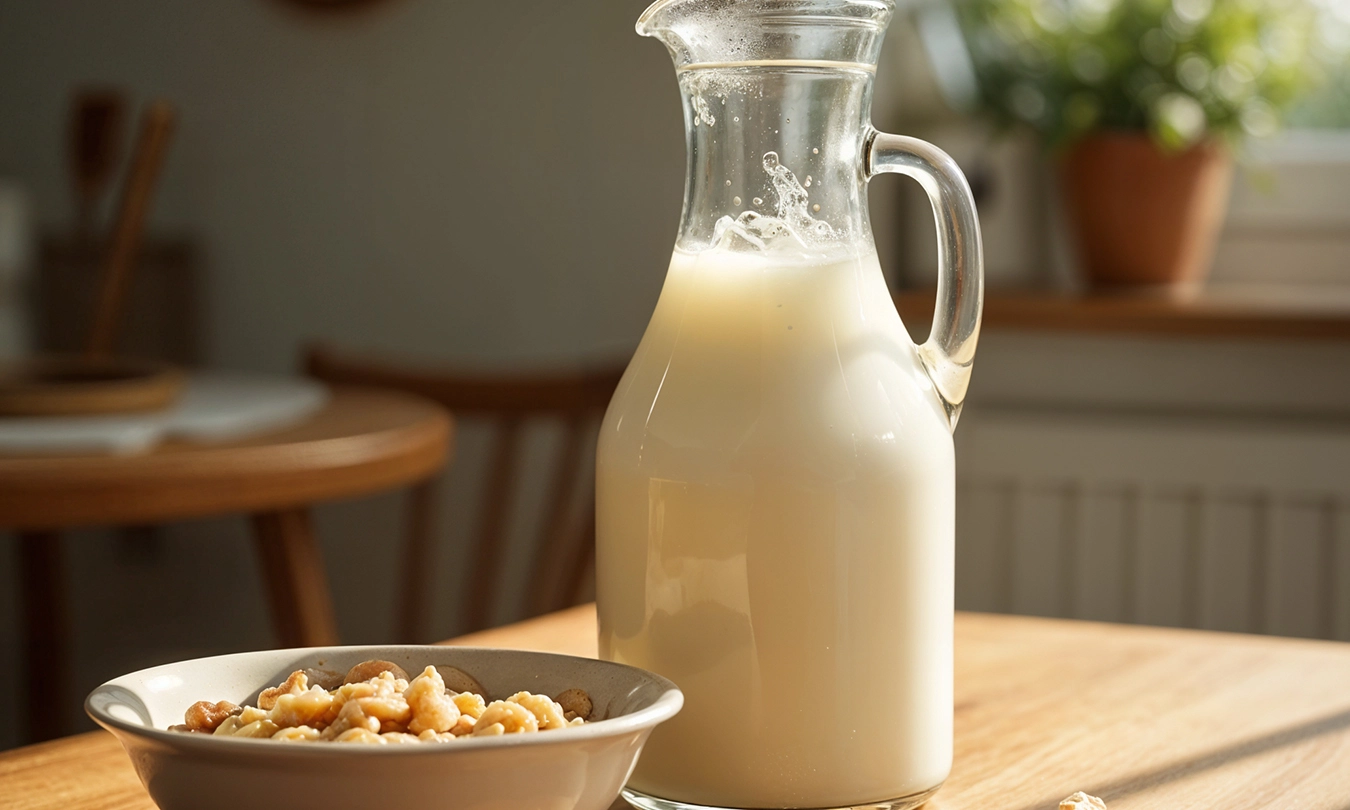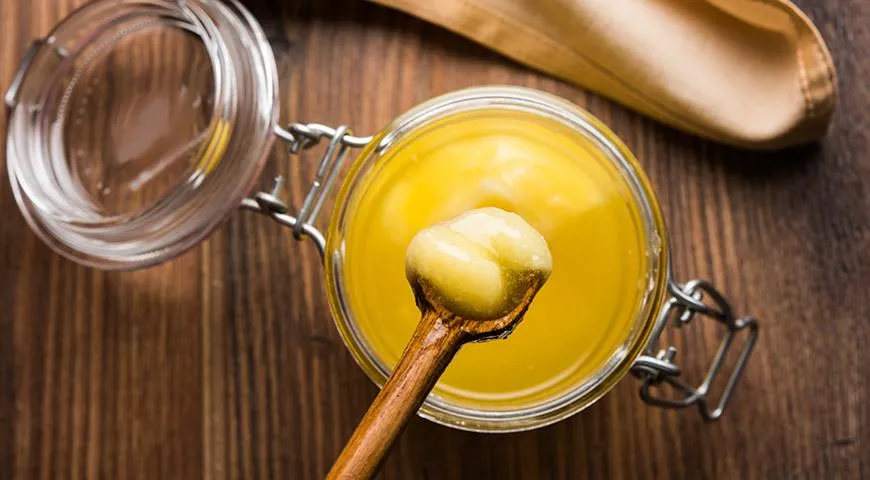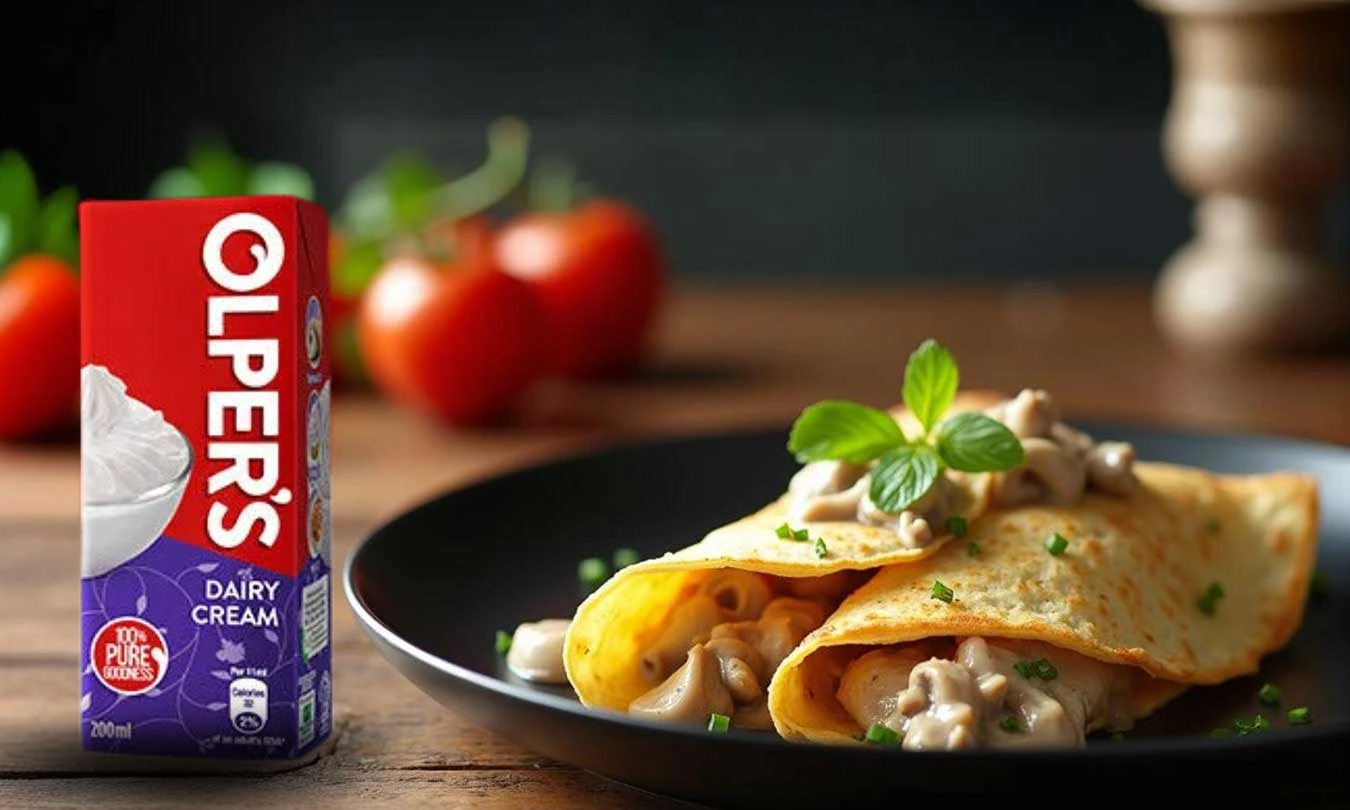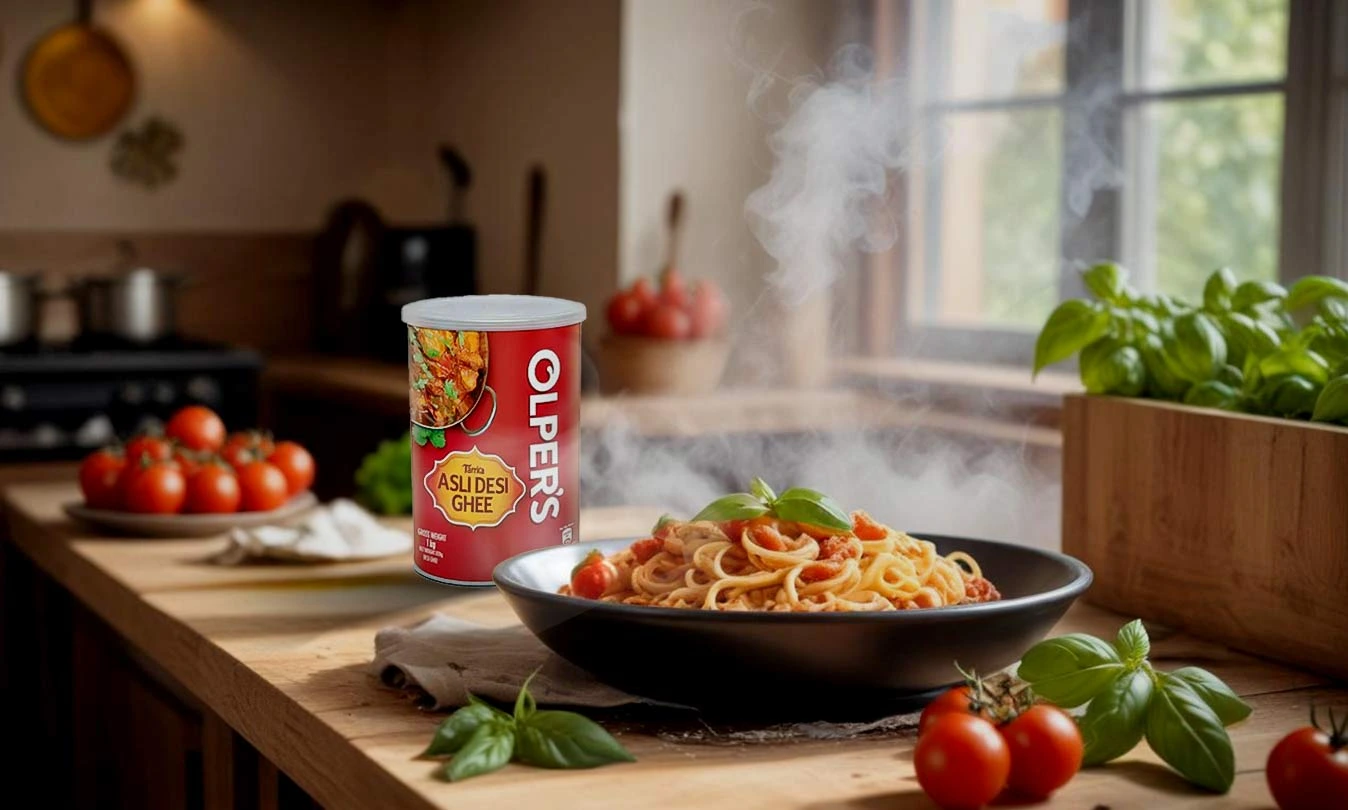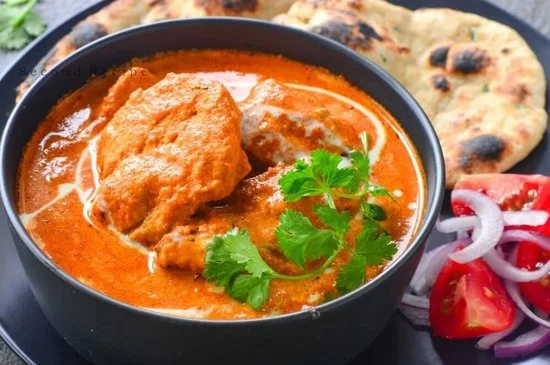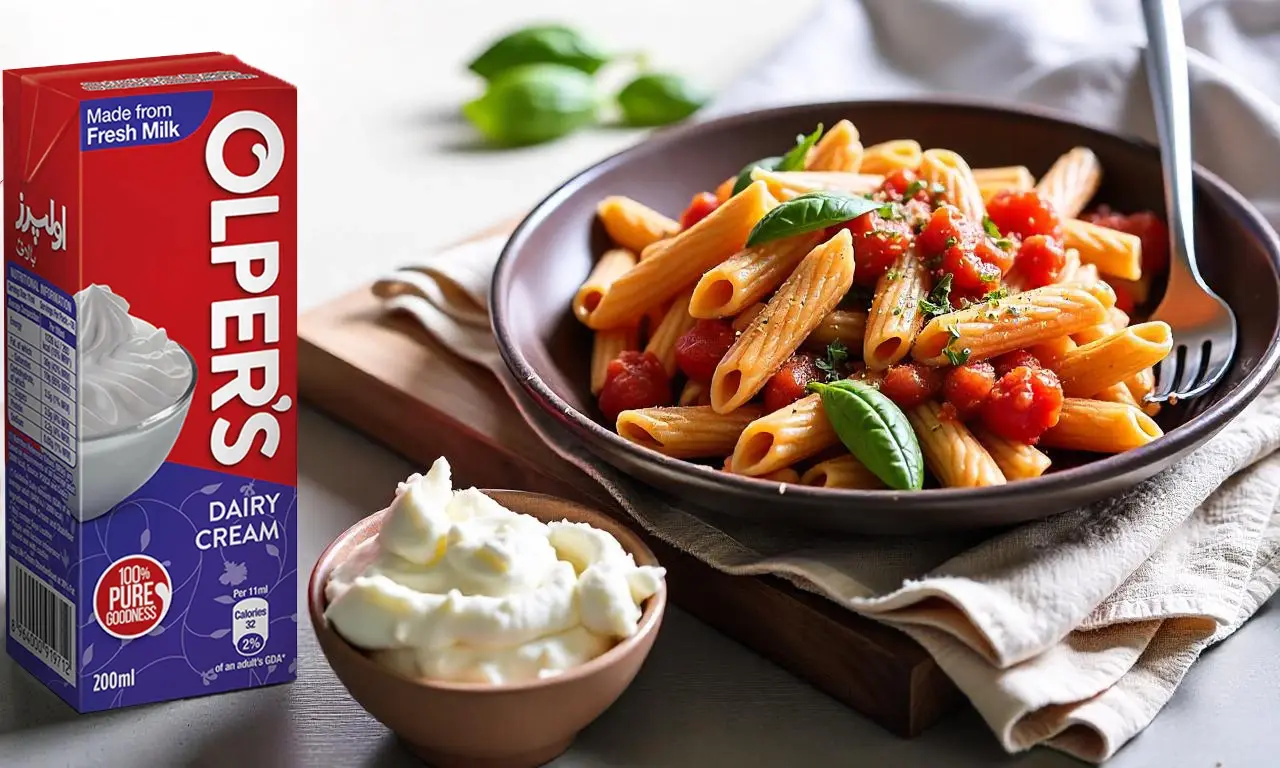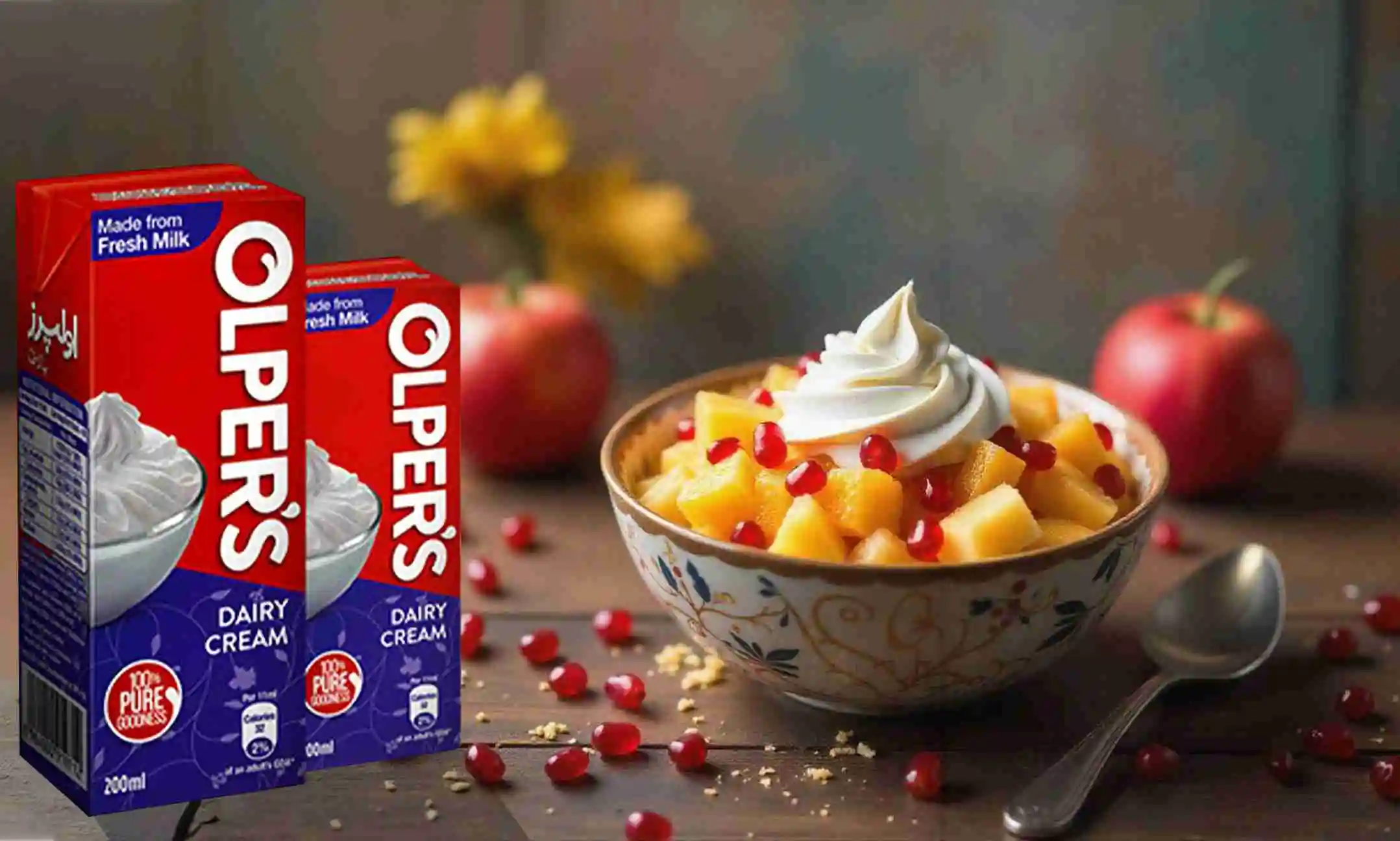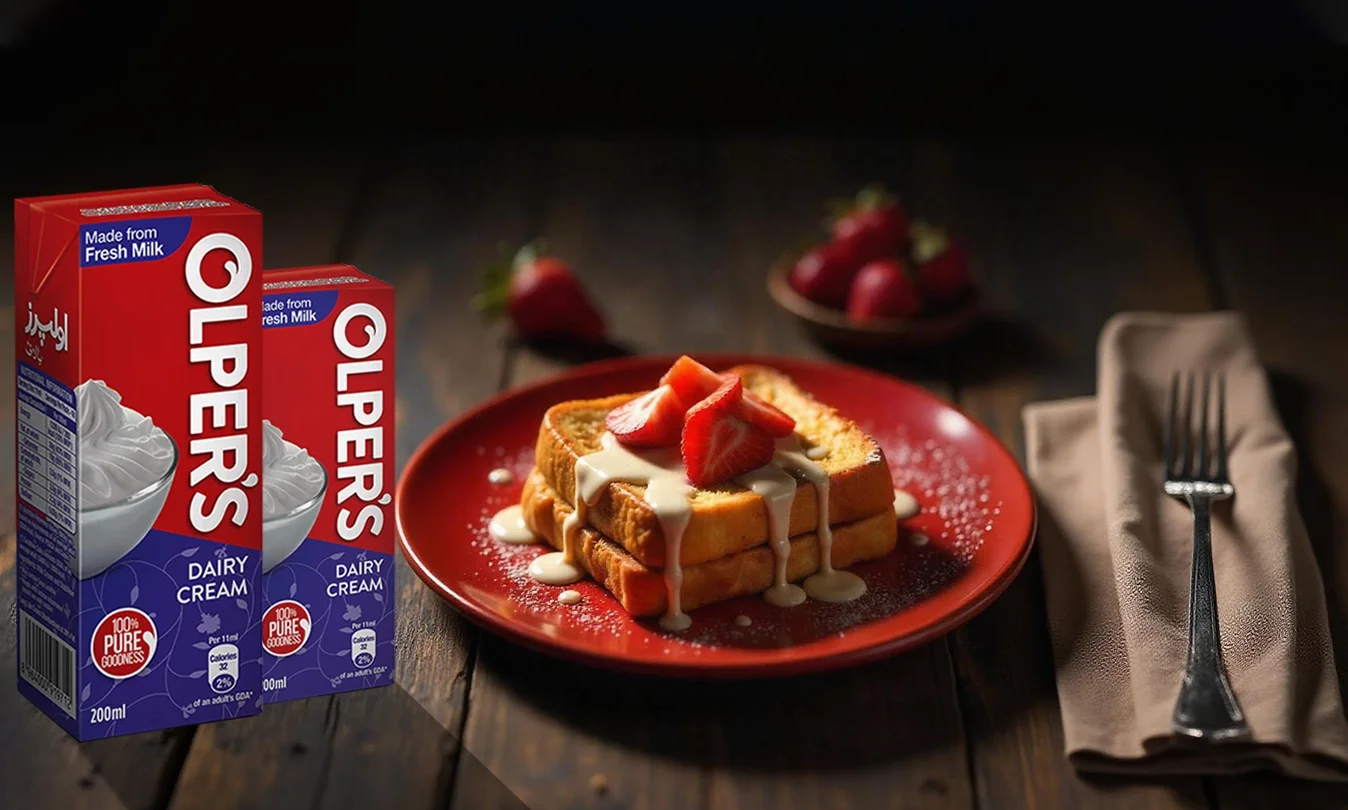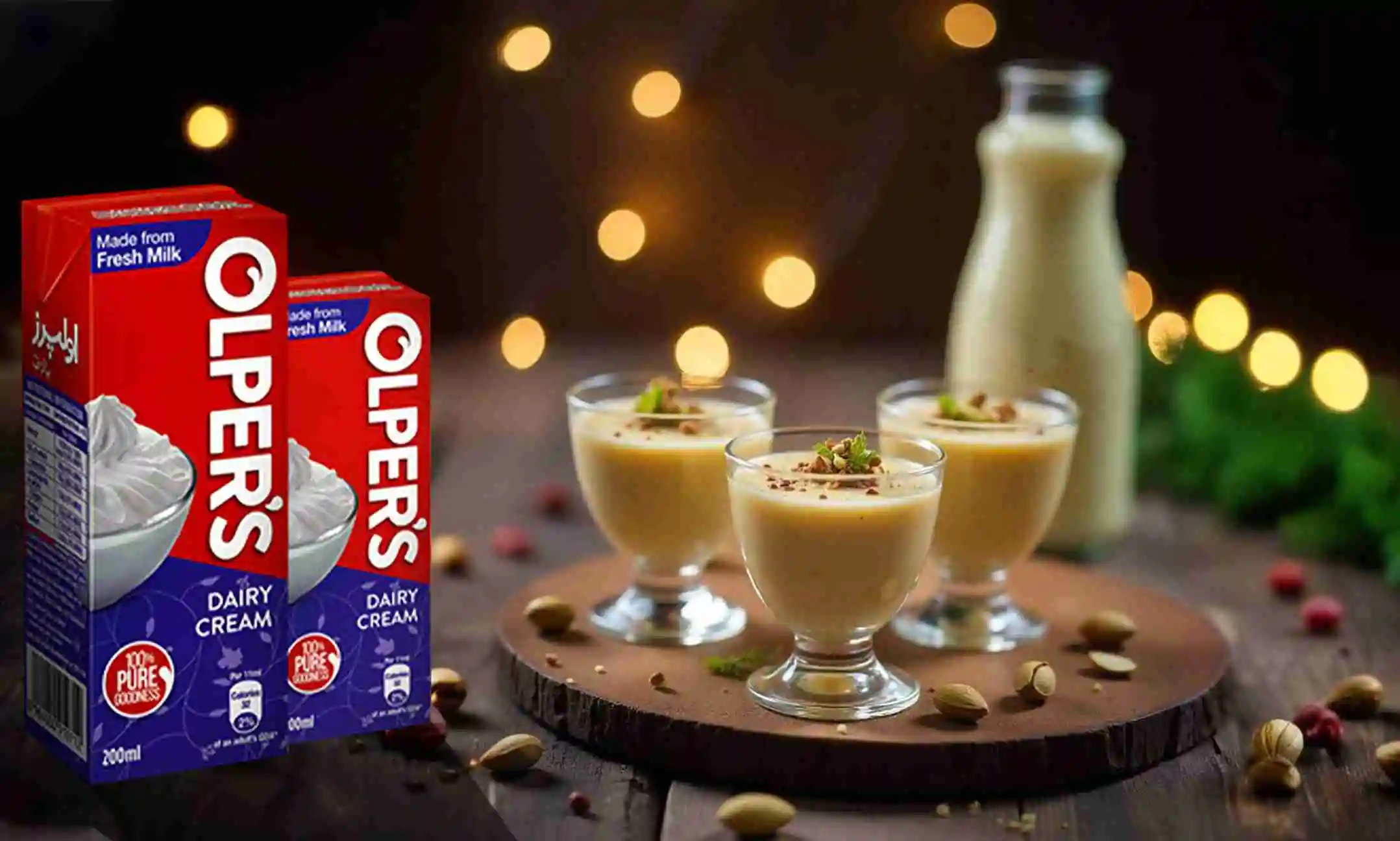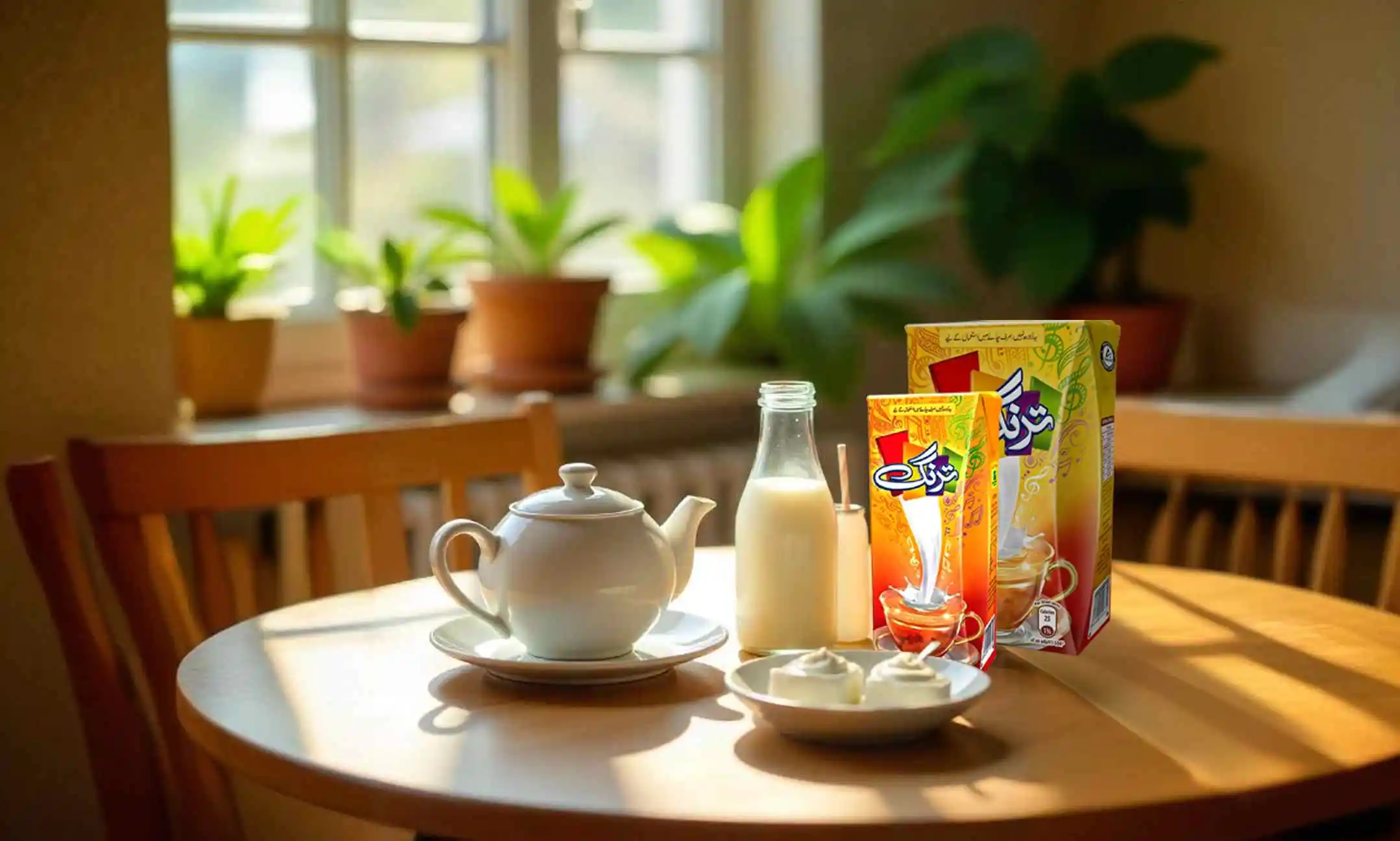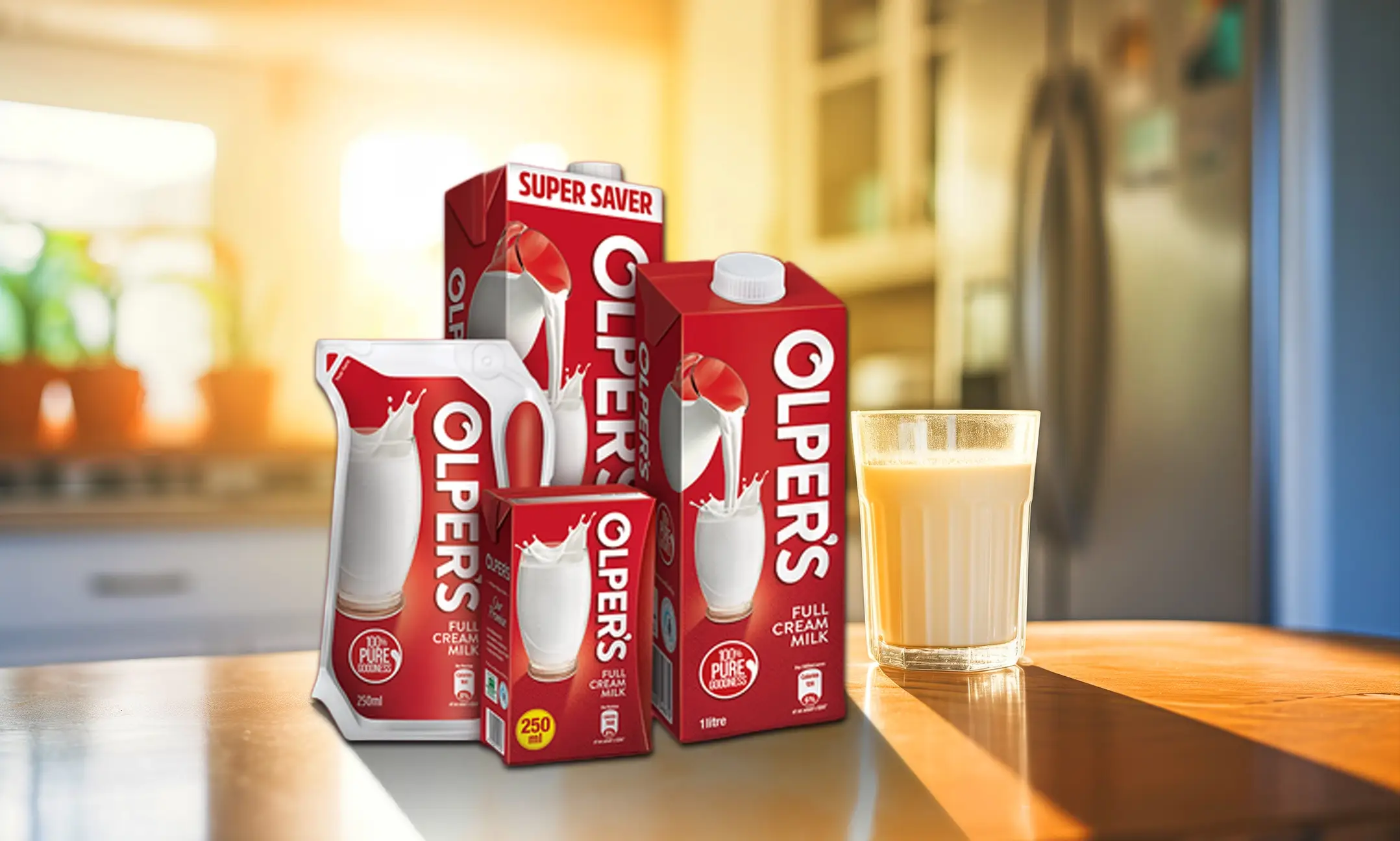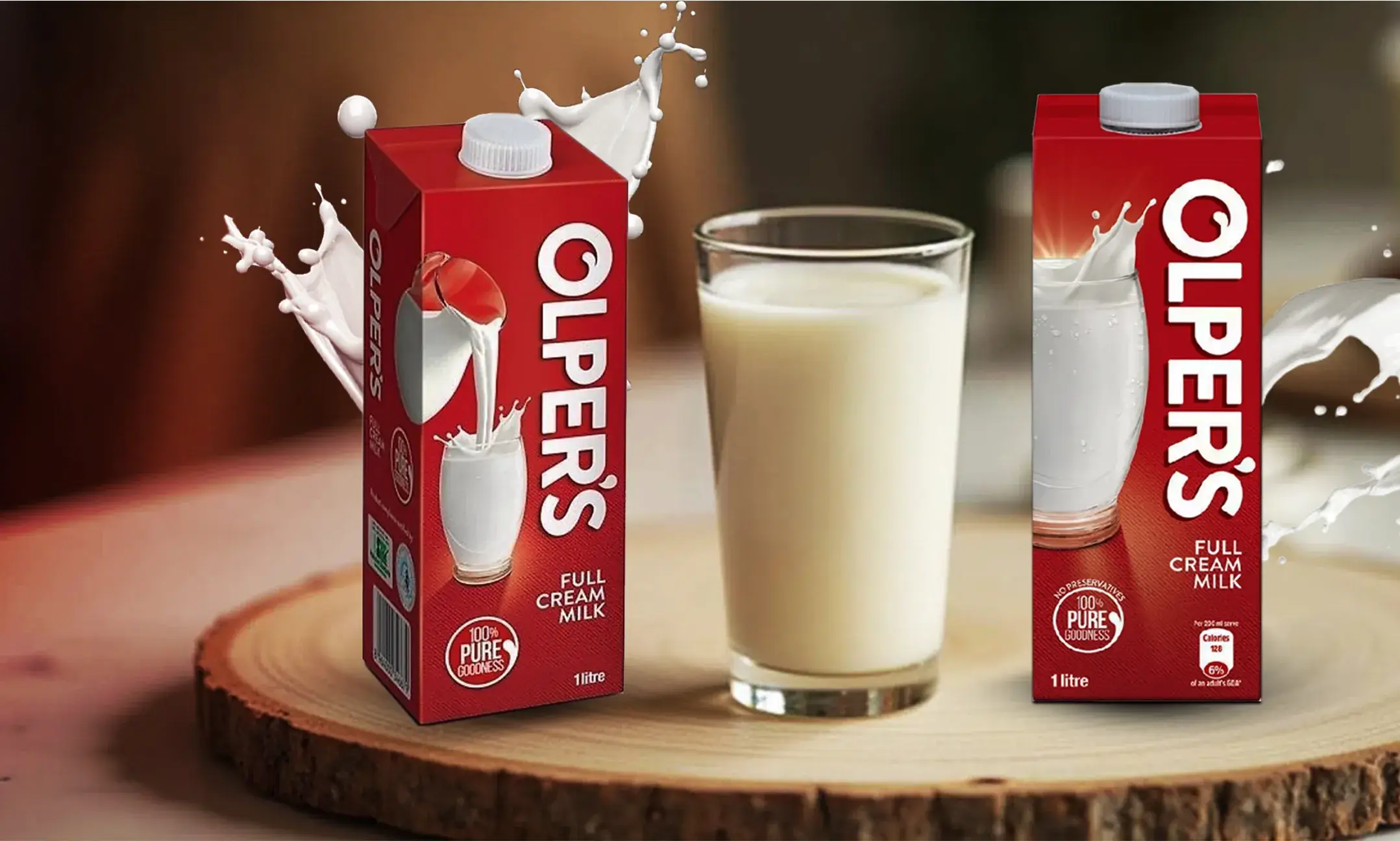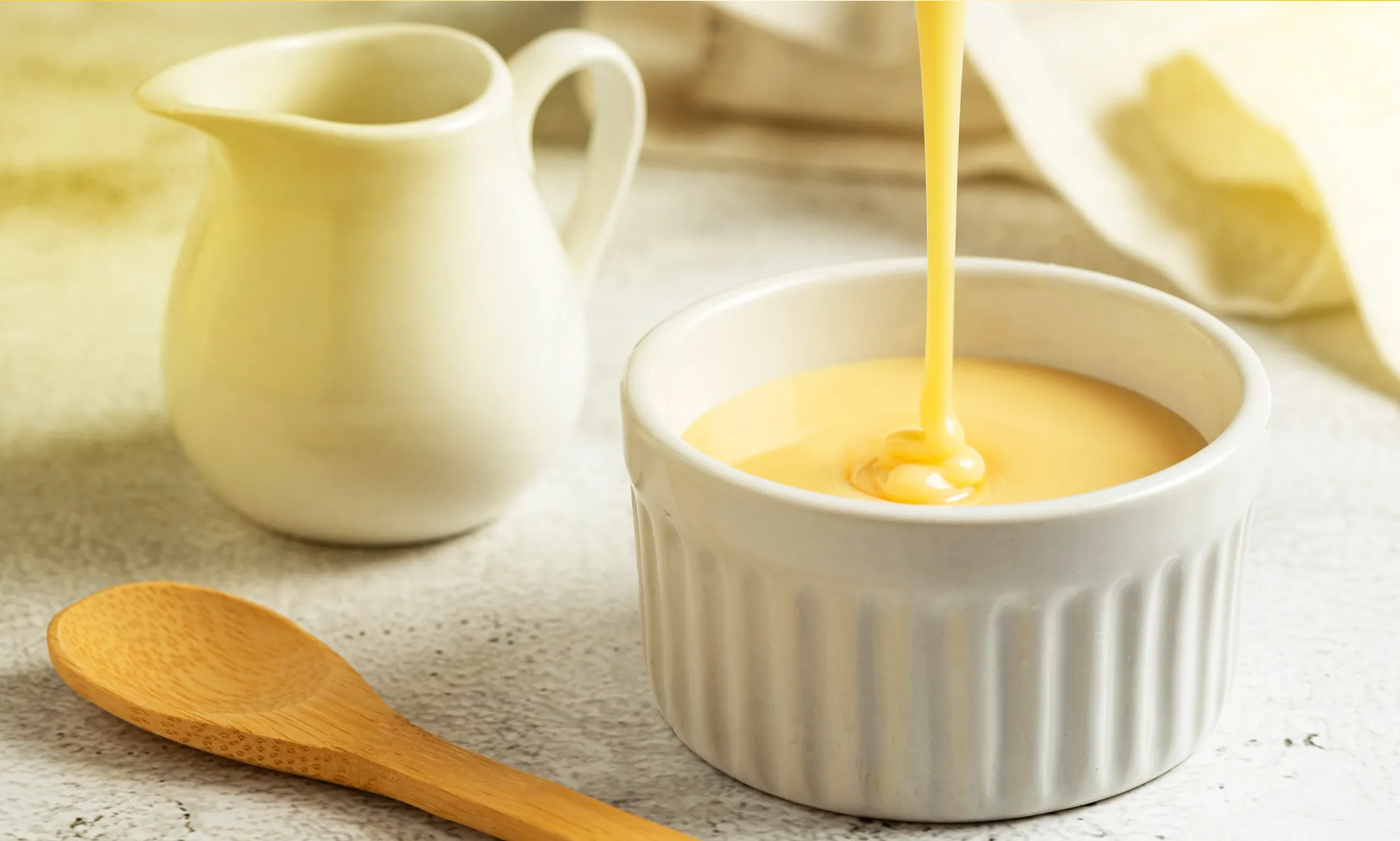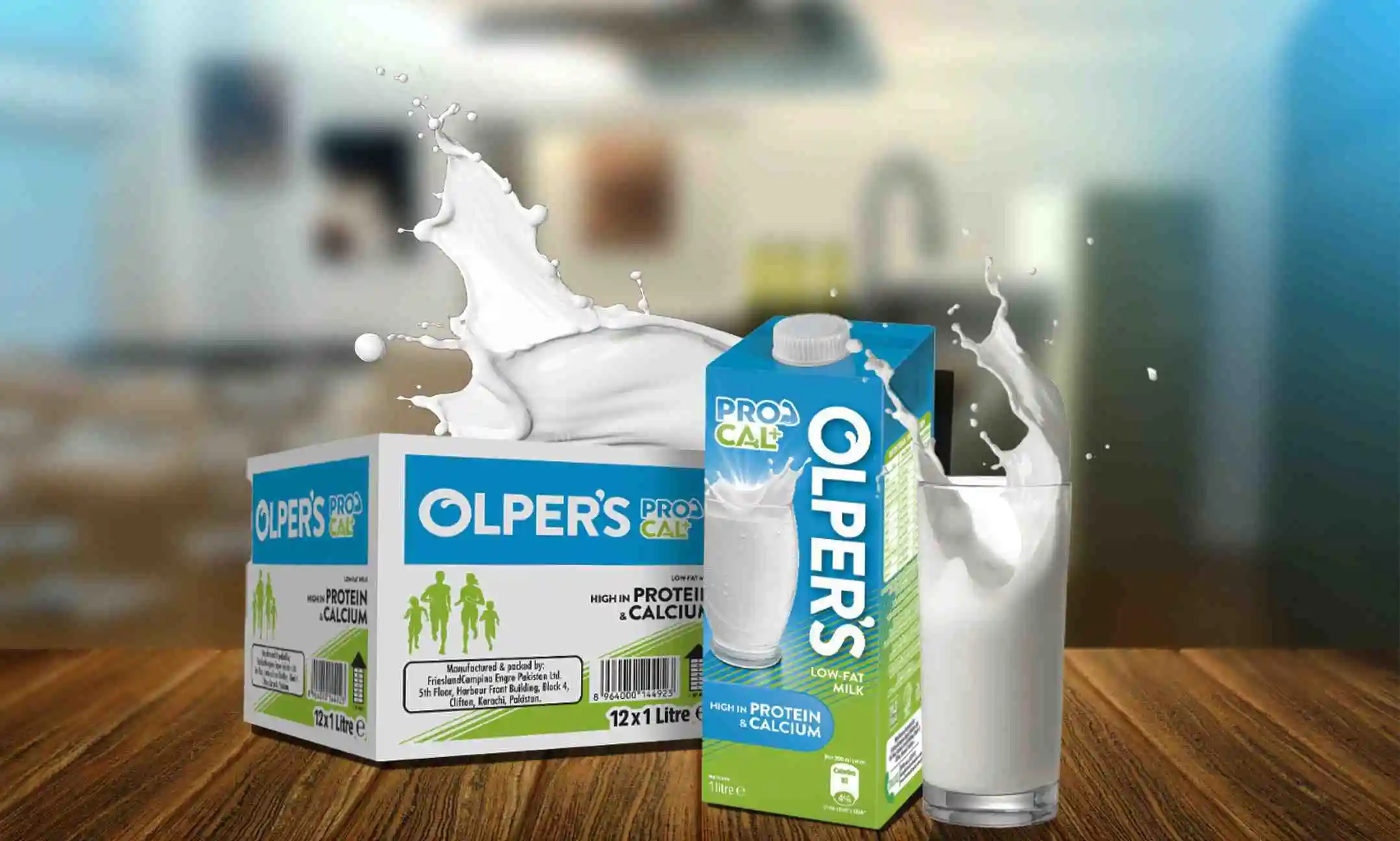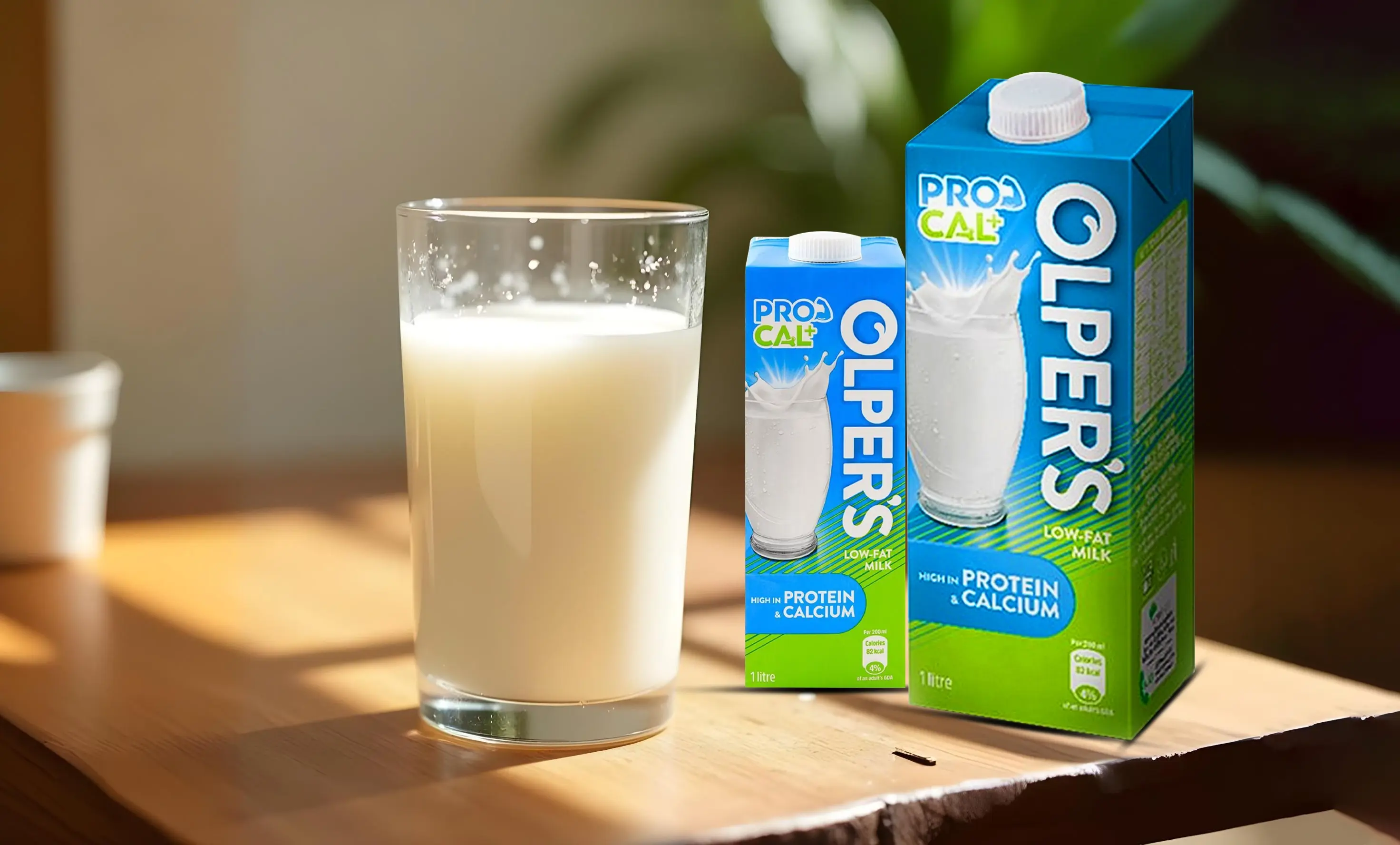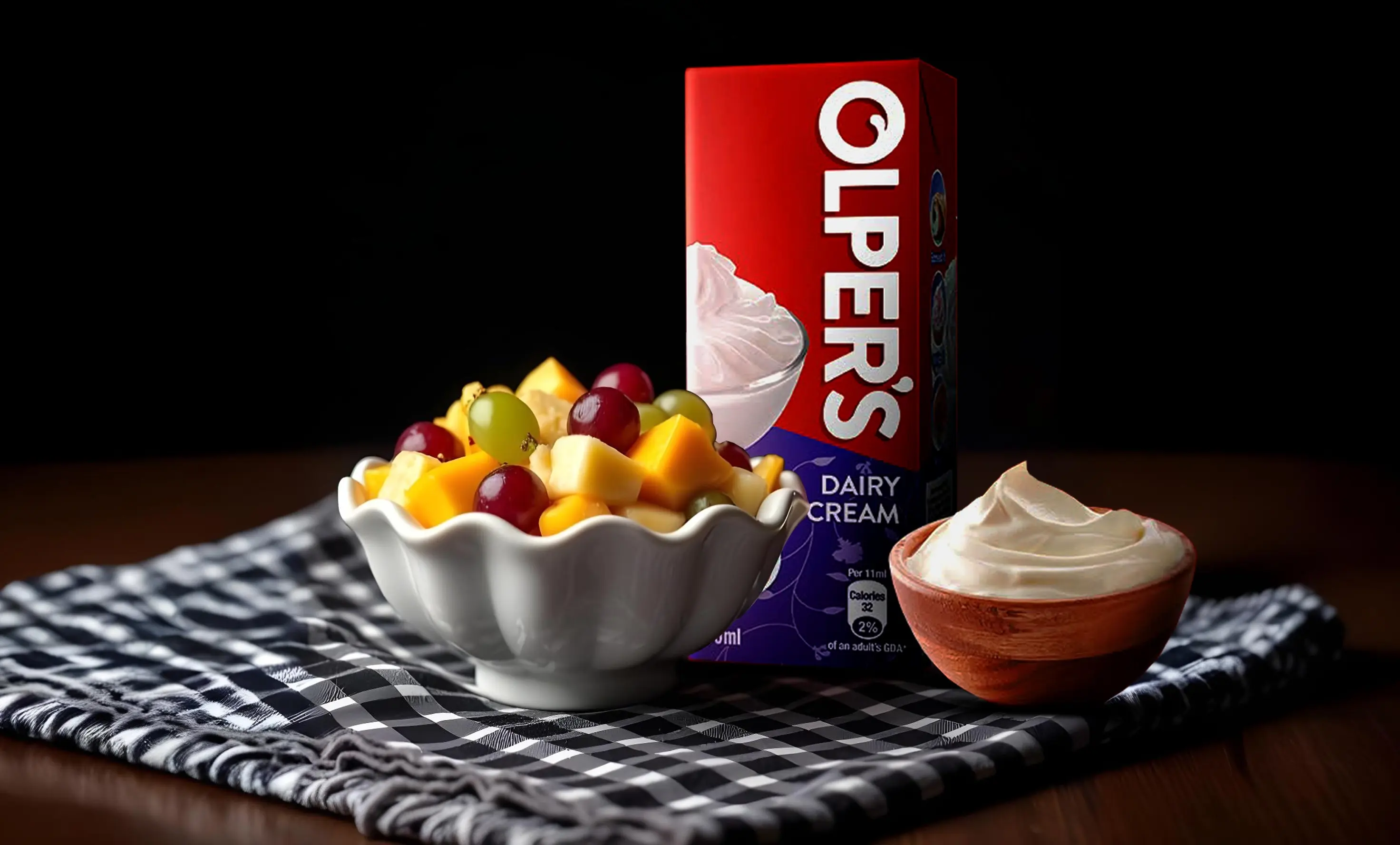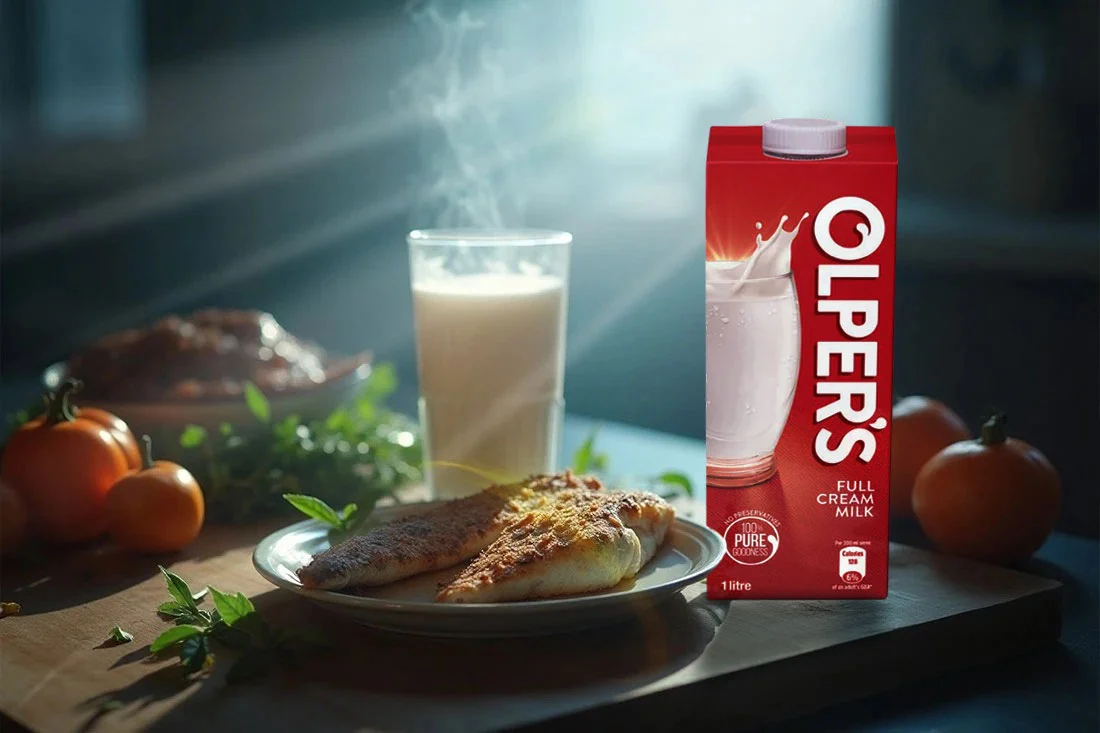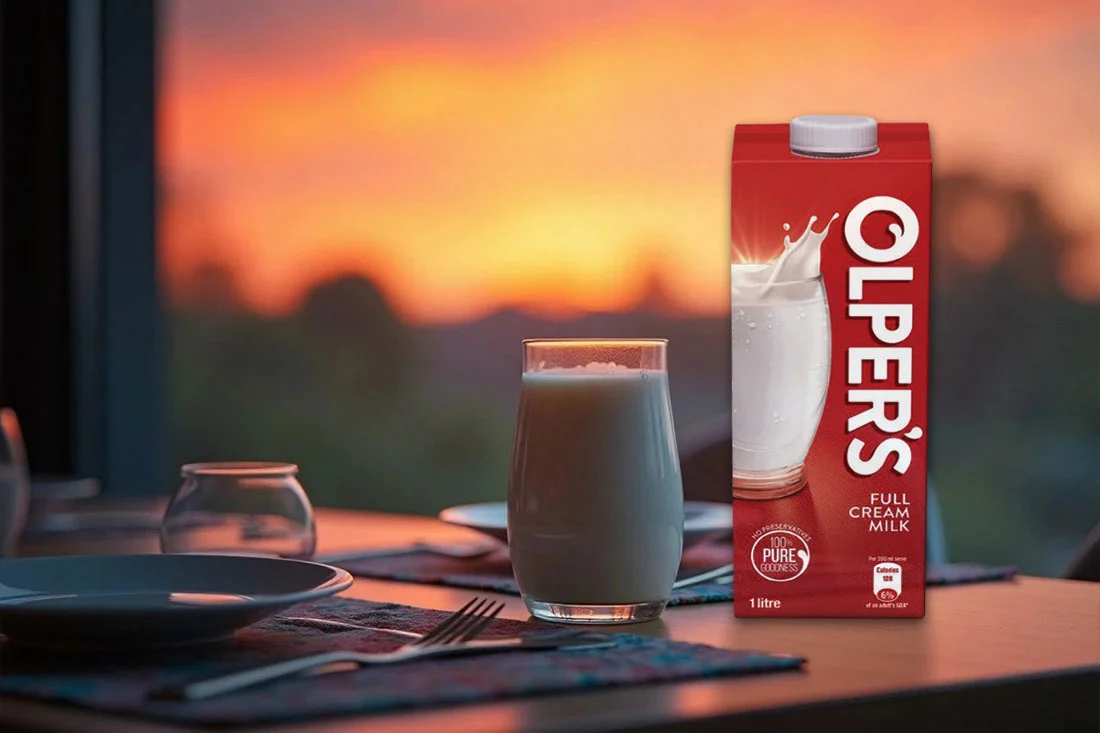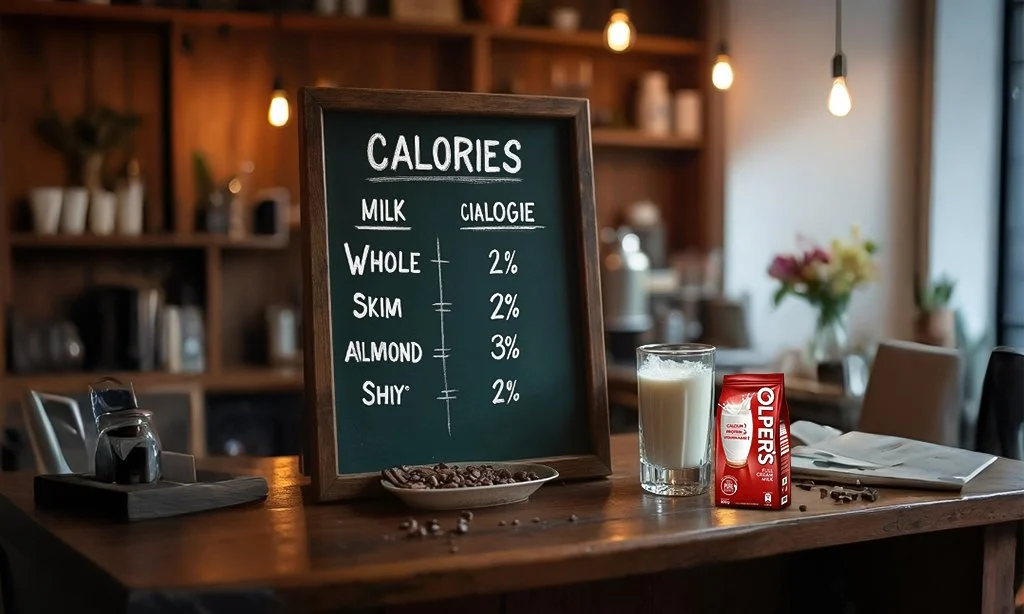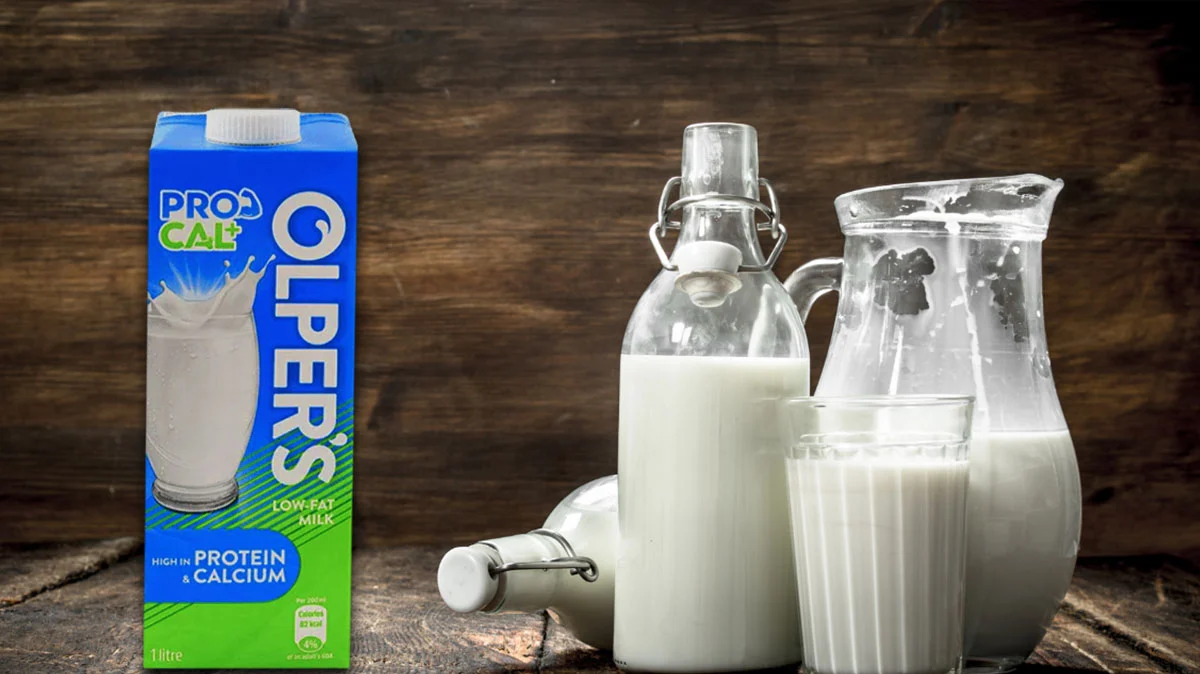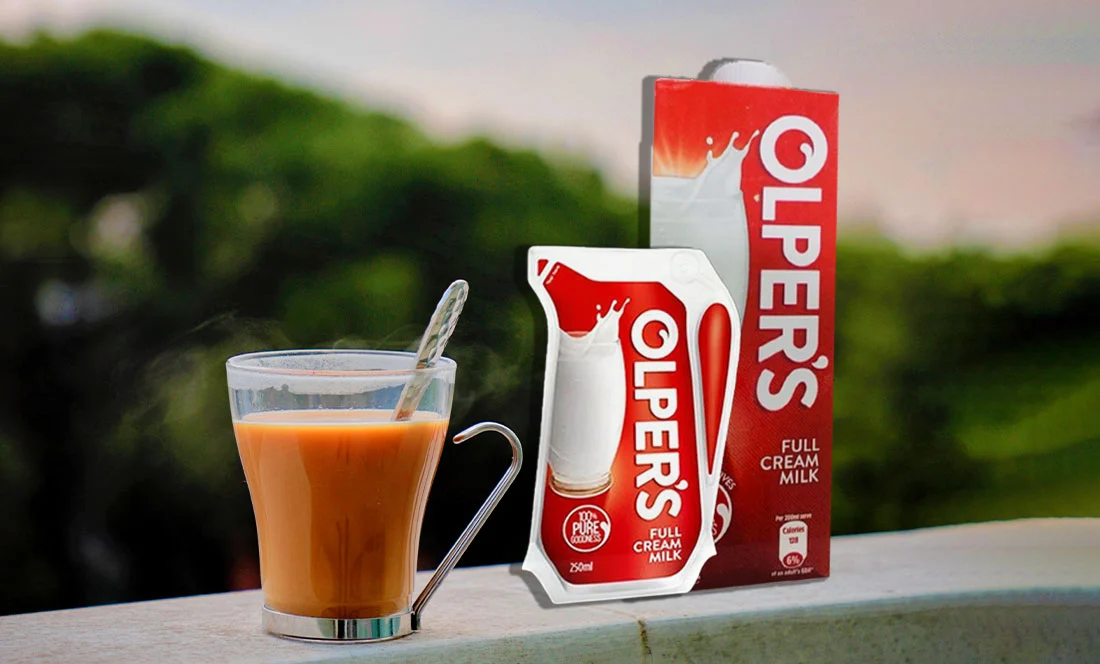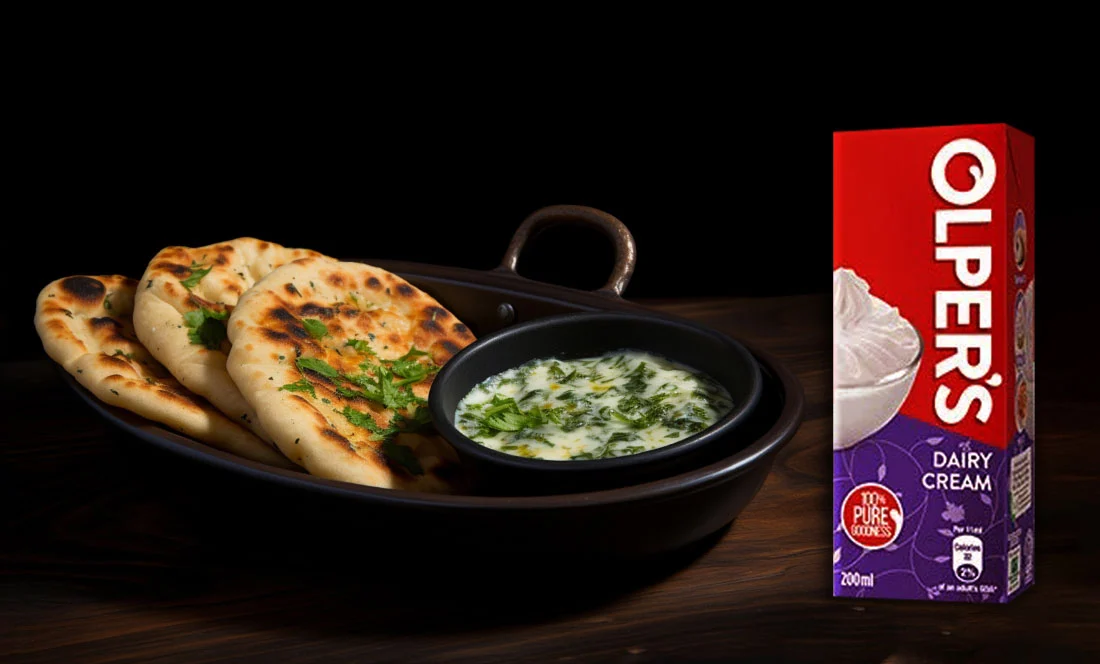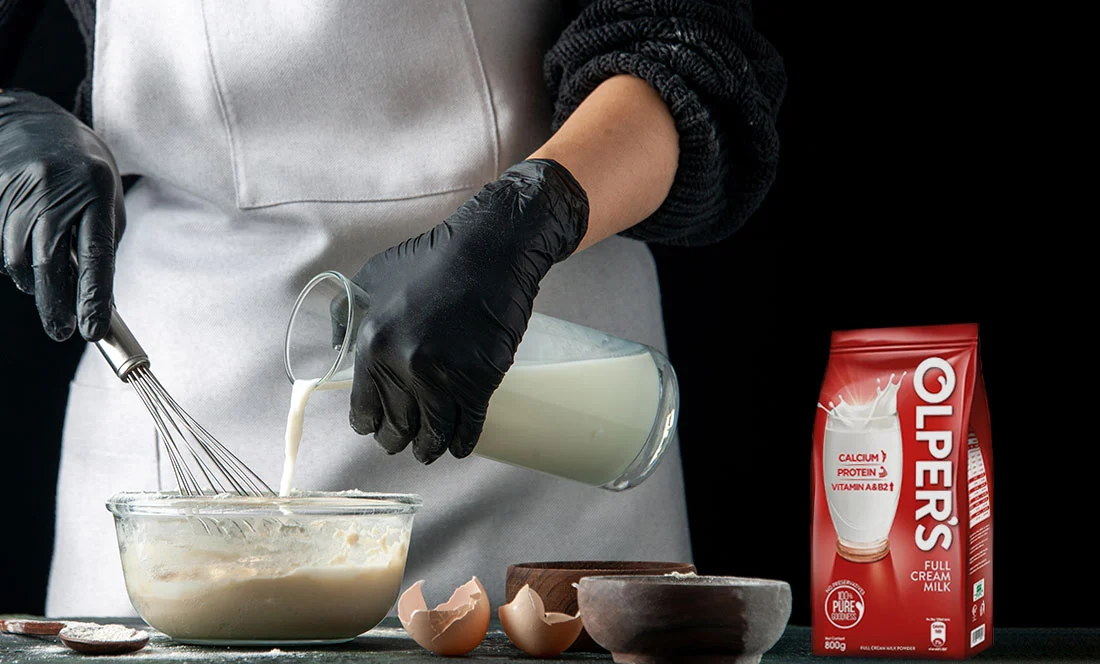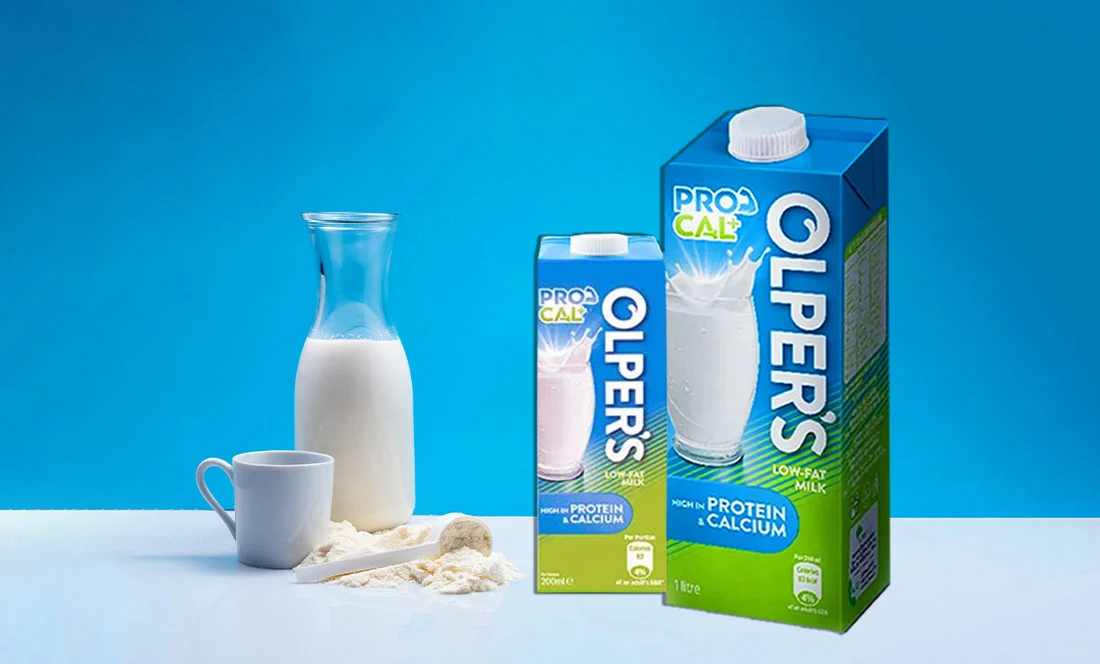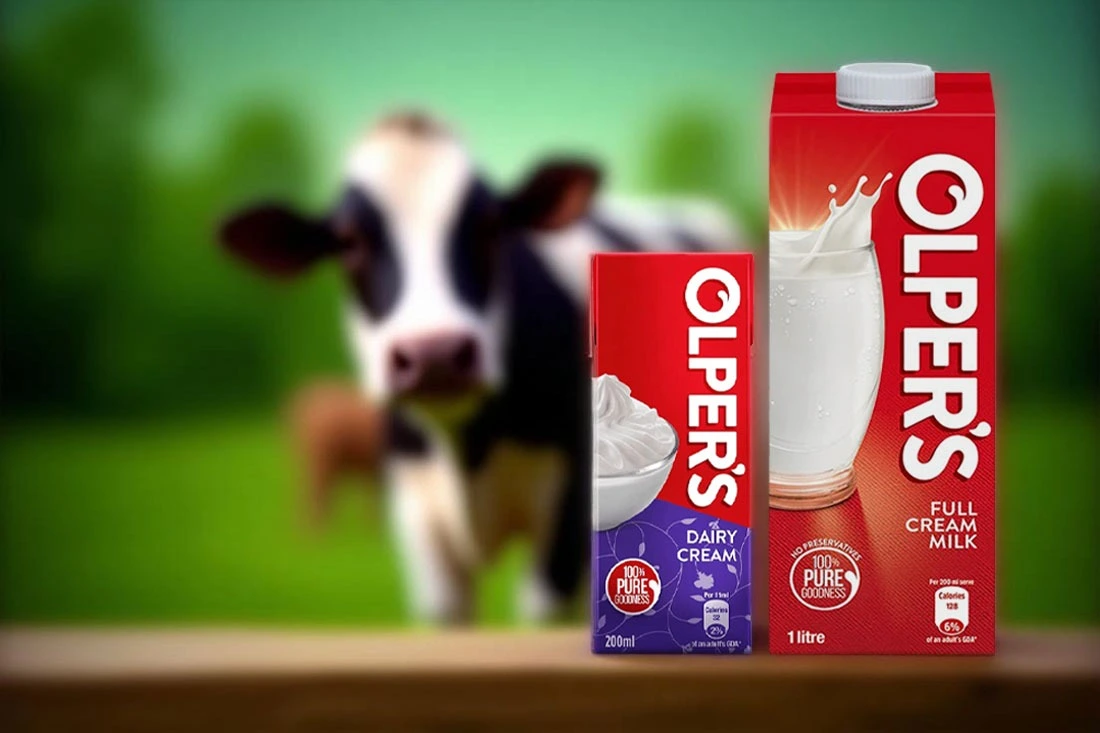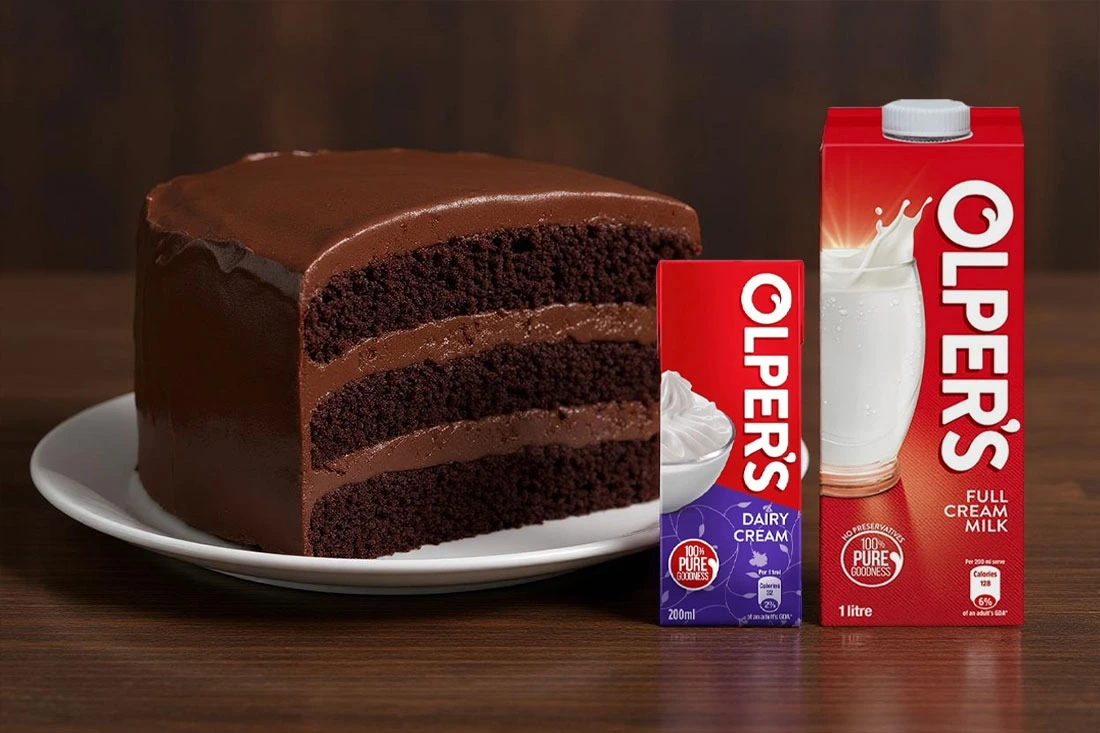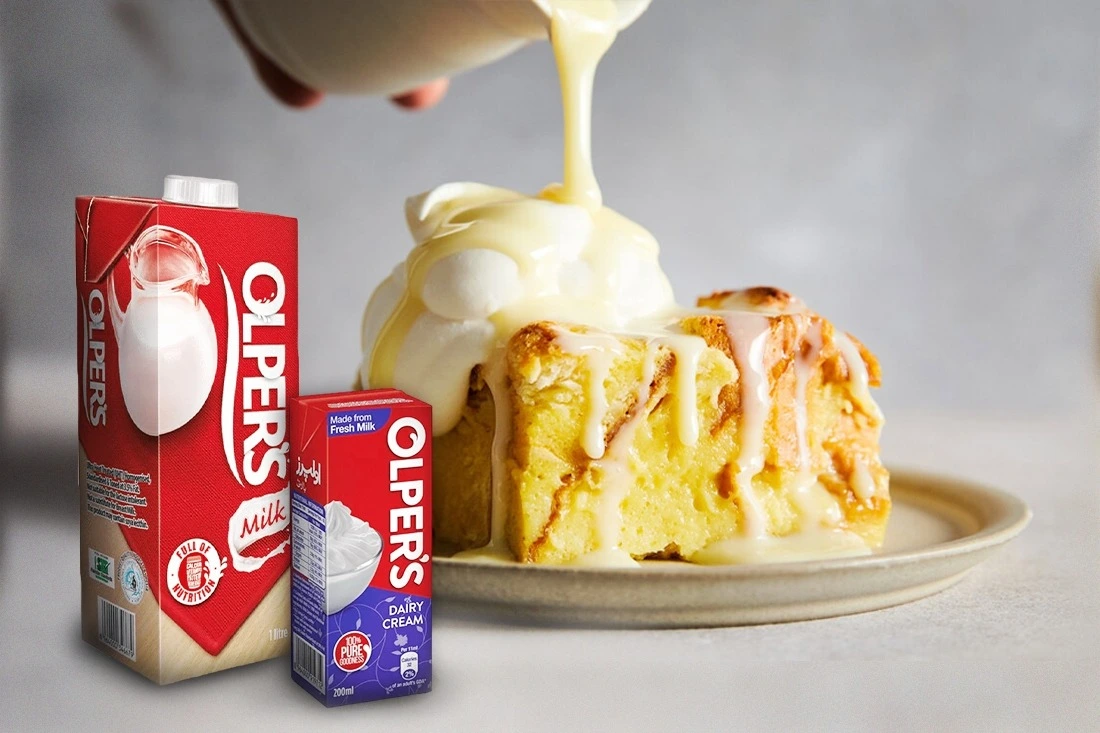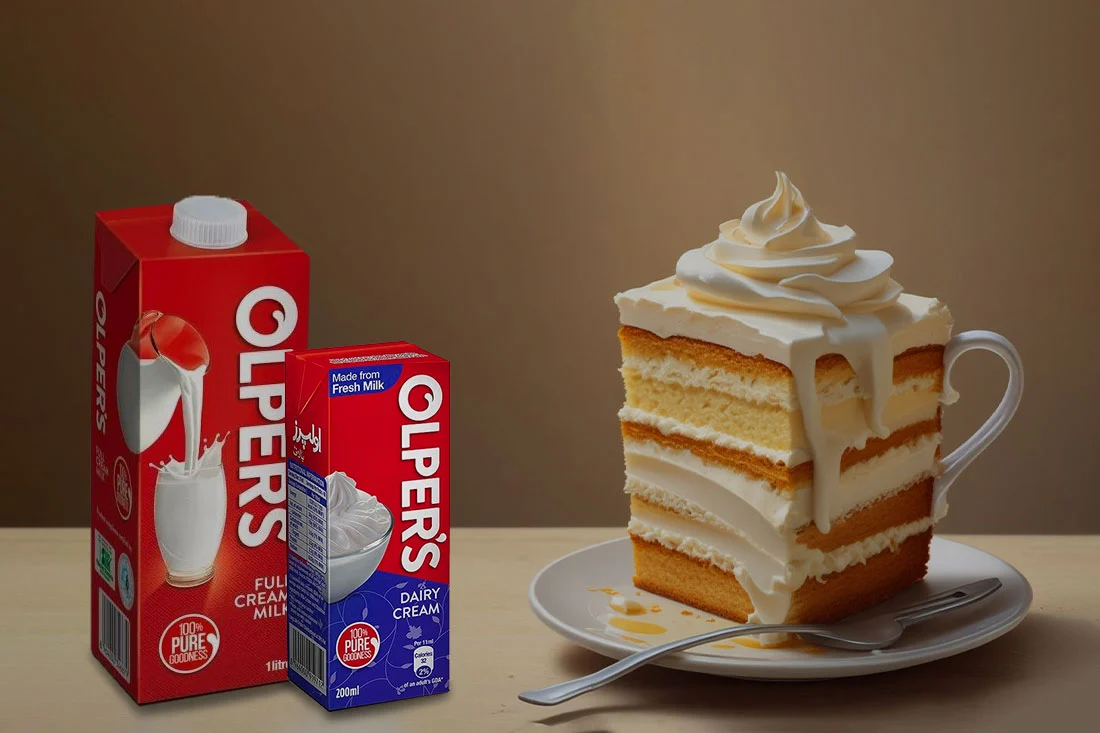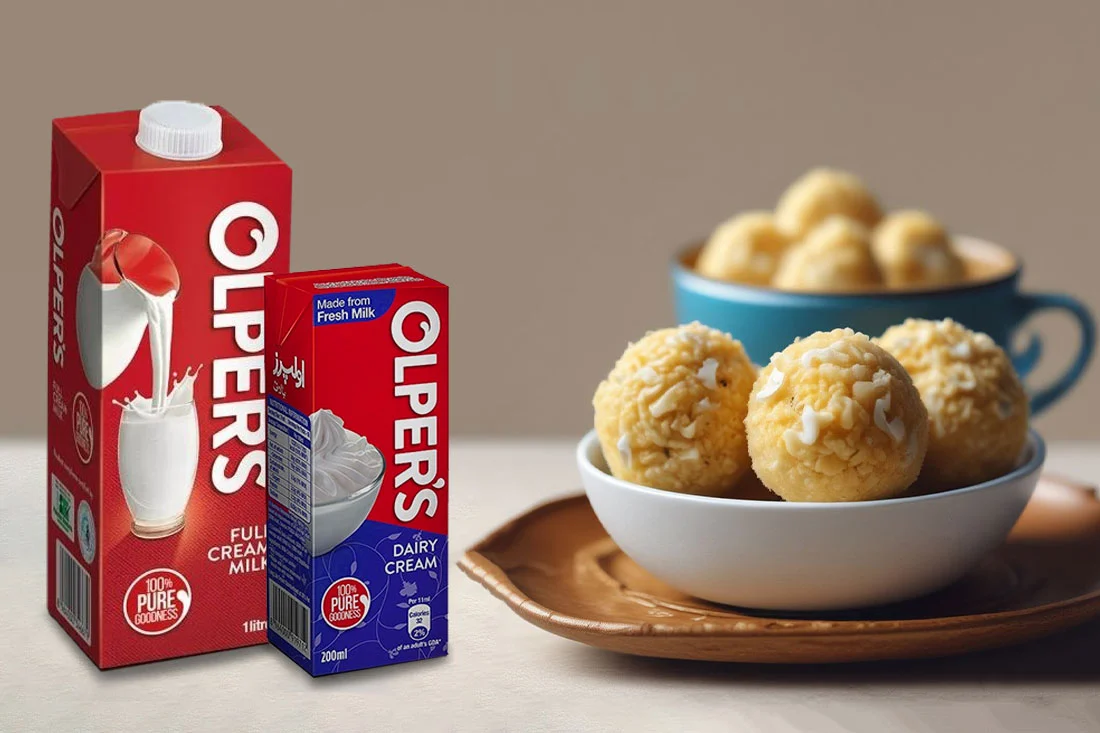IS MILK TEA GOOD FOR HEALTH?
TABLE OF CONTENTS
- WHAT IS MILK TEA?
- NUTRITIONAL OVERVIEW OF MILK TEA
- HEALTH BENEFITS OF MILK TEA
- HEALTH RISKS AND CONCERNS
- MILK TEA VS. OTHER BEVERAGES
- TIPS FOR MAKING HEALTHIER MILK TEA
- FAQS (FREQUENTLY ASKED QUESTIONS)
- IS IT OKAY TO DRINK MILK TEA EVERY DAY?
- IS TEA WITH MILK HEALTHY?
- IS IT BETTER TO DRINK TEA WITH OR WITHOUT MILK?
- IS PAKISTANI TEA GOOD FOR YOU?
- EXPERT OPINIONS / STUDIES
- CONCLUSION
KEY TAKEAWAYS
- Milk tea can be a healthy beverage when consumed in moderation and with low sugar.
- Tea, especially black and green, contains antioxidants, while milk contains good levels of calcium, each offering health benefits.
- However, too much added sugar or other toppings can make milk tea a high-calorie treat.
- Healthier milk tea alternatives are possible at home using low-fat milk or plant-based products.
- Olpers Mart carries quality dairy products to help you create better milk tea.
From the busy streets of Taiwan to the chai stalls of Pakistan and elegant British afternoon tea venues, milk tea has captured the hearts of people worldwide. What started as a regional tradition has become an obsession, with bubble tea shops on every corner and masala chai making its way onto select menus at cafes across the country. From the chewy tapioca pearls embedded in classic bubble tea to the spicy comfort of desi chai, or even a simple cup of English breakfast tea with a splash of milk, milk tea can look very different depending on where you are—and each one has its own loyal following, cultural flair, and attributes.
But while this creamy beverage continues to win over incarnation after incarnation across continents, a common and concerning question remains: is tea good for your health, or is it just a delicious indulgence? In this blog post, we're going to highlight the nutritional pros and cons of tea, take apart some of the most popular versions, and help you discover once and for all if your favourite tea is a friend or foe in your wellness journey!
WHAT IS MILK TEA?
It is, at its core, a flavored drink that mixes tea with milk, sweetened with sugar, and often enhanced with toppings or spices. It becomes a silky and comforting drink of bold tea tastes tempered by the creaminess of milk.
COMMON INGREDIENTS
- Tea (usually black tea, although green, oolong, chai blends, etc.)
- Milk (whole, evaporated, condensed, etc., it can be dairy or plant-based like almond, soy, oat, etc.)
- Sweeteners (sugar, honey, flavored syrups, etc.)
- Toppings (boba, jelly, pudding, whipped cream, etc.)
Here's a quick overview of the popular regional variants of it:
- Taiwan – Bubble Tea (Boba): A refreshing cold milk tea with chewy tapioca pearls; usually available in fruity or flavored variations.
- Masala Chai: A delicious spicy black tea with milk and sugar, flavored with cardamom, cinnamon, ginger, and other warming spices.
- United Kingdom – English Breakfast with Milk: A strong black tea served with a dash of milk; usually drunk without additional sugar.
- Hong Kong – Hong Kong-style Milk Tea: Rich and flavorful black tea served with evaporated or condensed milk.
- Thailand – Thai Iced Tea: An intoxicating sweet, creamy black tea drink with condensed milk and sugar served over ice, with an eye-catching bright orange color.
It is not just a beverage, it is a lifestyle. Each region adds a flair to milk tea as they transform a basic concoction of tea leaves and milk into something individual and exceptional.
NUTRITIONAL OVERVIEW OF MILK TEA
It can be a beverage that does little but hold you and satisfy, however, its nutrients could differ based on the ingredients; what type of tea, what type of milk, whether you add sweeteners or toppings. Here is a breakdown of it all:
CALORIES
- Plain Milk Tea (no sugar or toppings): 80–120 calories for a 240 ml cup (type of milk will determine calories, (i.e., cream, skim, or plant-based options).
- Calories for Sugar (1–2 teaspoons): 16–32 calories for Toppings (like tapioca pearls in their bubble form): 100–150+ calories, depending upon how many you have and the syrups involved.
KEY NUTRIENTS FOUND IN MILK TEA
- Calcium: Calcium is provided by the dairy or fortified plant milk you may have used; it's an essential mineral to build bones and teeth.
- Antioxidant: Tea contains antioxidants (especially green and black tea). Antioxidants control free radicals and inflammation.
- Caffeine: Caffeine is found in tea (naturally) and aids you in mental alertness. Functioning overindulges in caffeine may lead to jitters or staying up all night!
- Sugar: It can be used to boost energy calories as well, however, more calories mean more potential to harm blood sugar levels later on.
POSSIBLE DIFFERENCES IN TEA TYPES
- Black Tea: High antioxidant theaflavins and caffeine amounts; full-bodied flavour and a boost of energy.
- Green Tea: Moderate amounts of catechins (antioxidants) were amounts of caffeine.
- Oolong Teas: Caffeine levels and antioxidant levels are in the middle; a mix of qualities from green teas and black teas.
HEALTH BENEFITS OF MILK TEA
Although it is frequently viewed as a treat, it can provide a couple of health benefits too, especially when consumed in moderation and with little sugar:
- Tea Leaf Antioxidants: Black, green, and oolong teas are rich in antioxidants (e.g., catechins and theaflavins), which help combat free radicals, reduce inflammation, and allow cells to be healthy.
- Potential Heart Health Benefits: Moderate tea consumption may be related to improved cardiovascular health (ex. cholesterol and blood pressure) from flavonoids and polyphenols.
- Calcium and Vitamin D from Milk: Dairy or fortified plant-based milk can provide calcium and sometimes vitamin D, which helps bones, teeth, and muscles!
- Relaxation and Energy: While tea has caffeine, the amount provides mild and sustainable energy (unlike coffee) and allows the ritual of sipping warm milk tea to be soothing and mentally relaxing.
HEALTH RISKS AND CONCERNS
While tea has its benefits, there are several health consequences worth considering, too, especially if one consumes it in excess:
- Excess Sugar and Risk of Diabetes: Most variations of tea include added sugar or sweetened condensed milk. Both of these sugar types are high in sugar content, which greatly increases one's risk for high blood sugar and type 2 diabetes later on.
- Added Calories and Weight Gain: Most toppings of tea drinks, like tapioca pearls (boba), jelly, and flavored syrups, can be very calorie-dense and usually very high in carbs. So, if you regularly consume these types of drinks, you may end up unintentionally gaining weight.
- Caffeine Related: Depending on the tea based for the milk tea, one may get a moderate to high amount of caffeine in one milk tea drink. Consuming a lot of caffeine can impact sleep quality, cause ambulation, increase one’s heart rate, or trigger anxiety—especially in those delicate to stimulant effects.
- Dairy Intolerance and Consideration of Digestion: This tea is typically made with dairy, and I have found that people who are lactose intolerant tend to experience bloating, gas, or stomach discomfort after consuming dairy products. Many non-dairy alternatives are available, but some non-dairy milks can also contain added sugar and preservatives.
MILK TEA VS. OTHER BEVERAGES
Now let's consider how it compares to some other common beverages in terms of nutrition and health effects:
COFFEE
- Pros: Like tea, coffee is rich in antioxidants. It may also enhance mental clarity.
- Cons: Coffee can be acidic and should be enjoyed in moderation to avoid jitters.
- Comparison: Assuming sugar/cream is not added, regular coffee is usually lower in calories than tea and contains more caffeine.
GREEN TEA
- Pros: Green tea is rich in antioxidants (called catechins), promotes body composition, and supports heart health.
- Cons: Green tea made from real leaves may be bitter for some drinkers, unless they add sweeteners.
- Comparison: As a calorie-free drink for the most part, green tea is a better choice than sugary milk tea, and more healthy in many respects.
SODA/SOFT DRINKS
- Pros: There are few nutritional benefits to soft drinks; people mainly drink soda for taste.
- Cons: In most cases, soda is high in sugar, empty calories, and has been linked to weight gain and tooth decay.
- Comparison: Unlike soda, it may have some nutritional value (calcium from milk or antioxidants from tea), so it is arguably better than soda if sugar is controlled.
MILK TEA
- Pros: It has calcium (from the milk), antioxidants (from the tea), and it is often made with customizable items.
- Cons: This tea is (in a lot of cases) very high in sugar and calories; sweetened toppings can add a lot of sugar and calories.
- Balanced view: Tea is enjoyable in moderation, especially with alternative ingredients to make it healthier (such as less sugar and plant-based milk).
TIPS FOR MAKING HEALTHIER MILK TEA
Want to have your favorite tea minus all the guilt for it? Here are the ways to make a healthier alternative at home:
- Pick Smart Milk Choices: Use low-fat dairy milk or plant-based options like almond, oat or soy milk to cut back on calories and saturated fat.
- Reduce Sugar: Pass on the sugar syrup or ask for half a sweet. Natural sweeteners like honey or stevia can be great alternatives.
- Omit Excessive Calorie Options: Avoid add-ons (tapioca pearls, boba, jelly, puddings) that tend to be heavy on sugar and starch.
- Enjoy Tea with Real Tea Leaves: Brew your tea with real black, green, and oolong tea leaves rather than artificial flavored powders.
- Don’t Use Creamers with Trans-fat: Avoid using non-dairy type creamers that may contain hydrogenated oils; use fresh milk or dairy cream in moderation.
FAQS (FREQUENTLY ASKED QUESTIONS)
IS IT OKAY TO DRINK MILK TEA EVERY DAY?
Yes, in moderation. Just don't overload on sugar, and be mindful of caffeine intake to avoid health risks such as weight gain and insomnia.
IS TEA WITH MILK HEALTHY?
It can be. Tea has antioxidants, and milk boasts calcium. Just be careful with sugar and high-fat creamers.
IS IT BETTER TO DRINK TEA WITH OR WITHOUT MILK?
Drinking tea without milk will keep more antioxidant properties, but drinking tea with milk will incorporate calcium. Drink tea with milk or without based on your health goals and personal preferences.
IS PAKISTANI TEA GOOD FOR YOU?
Yes, when consumed in moderation. The cardamom, cinnamon, and cloves offer health benefits, just balance your sugar or cream to avoid overindulgence of sugar or fat.
EXPERT OPINIONS / STUDIES
-
Limit added sugar: Use unsweetened options or natural sweeteners like stevia to keep calories down.
-
Use plant-based milks: Almond, soy, or oat milk may be great options for those who are sensitive to dairy.
-
Watch out for caffeine: Be mindful of how much caffeine you consume in a day, especially considering the possibility of drinking multiple caffeinated beverages.
-
Homemade: Making the tea at home allows you to control what goes in and ultimately make healthier choices.
CONCLUSION
Milk tea can be a comforting and delicious beverage that has benefits like antioxidants and calcium—if consumed with intention. It can become unhealthy with all the sugar, caloric toppings, or caffeine. So just hang tight on the delicious adventure and add a bit of moderation. You can make great decisions about your ingredients and enjoy aboard guilt-free! Looking for a healthier milk tea experience? Check-out the all curated dairy options and healthy ingredients for yourself at Olpers Mart today!
Related Blogs
| Image | Product | Price | Quantity | Subtotal |
|---|





